Cosmology's Midlife Crisis
IAIFI Fellow, MIT

Carolina Cuesta-Lazaro
Art: "A Bar at the Folies-Bergère" by Édouard Manet

Embracing the Machine Learning Makeover

["DESI 2024 VI: Cosmological Constraints from the Measurements of Baryon Acoustic Oscillations" arXiv:2404.03002]

What role did Machine Learning play?
Dark Energy is constant over time
DESI's Dark Energy constraints
Carolina Cuesta-Lazaro IAIFI/MIT @ AI goes MAD 2024


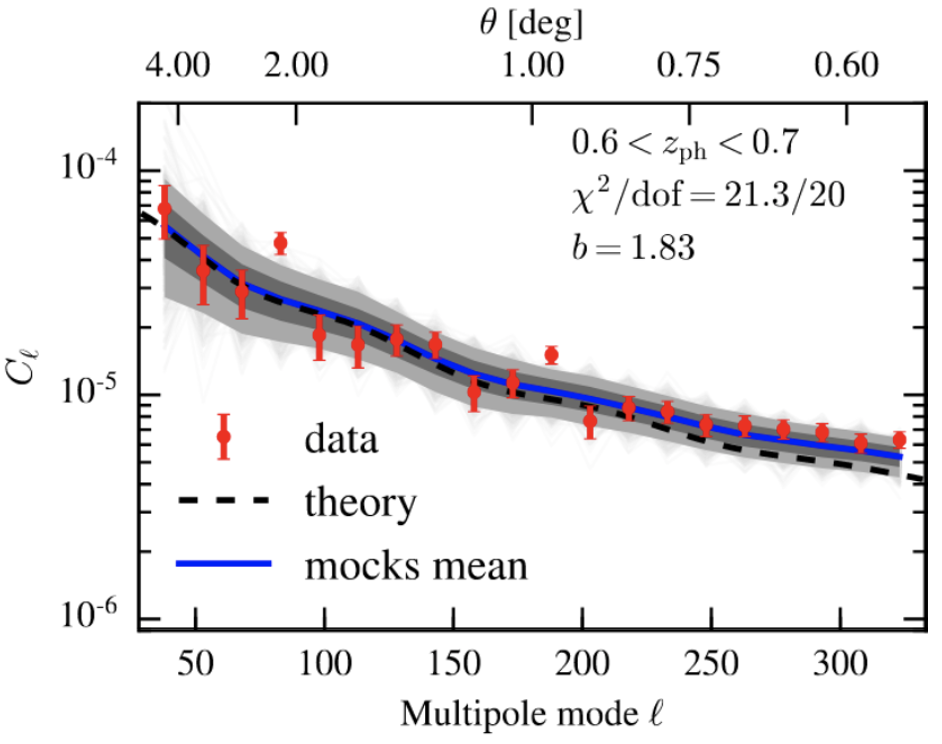

1-Dimensional



Machine Learning
Secondary anisotropies
Galaxy formation
Intrinsic alignments



DESI, DESI-II, Spec-S5
Euclid / LSST
Simons Observatory
CMB-S4
Ligo
Einstein


The era of Big Data Cosmology
xAstrophysics
Carolina Cuesta-Lazaro IAIFI/MIT @ AI goes MAD 2024
5-Dimensional

Dataset Size = 1
Can't poke it in the lab

Simulations
Bayesian statistics
Cosmology is hard
Carolina Cuesta-Lazaro IAIFI/MIT @ AI goes MAD 2024










Astrophysics dominates Simulation-based Inference
Carolina Cuesta-Lazaro IAIFI/MIT @ AI goes MAD 2024
Unicorn land The promise of ML for Cosmology
Reality Check Roadblocks & Bottlenecks

Outline of this talk
Mapping dark matter
Reverting gravitational evolution
Field Level Inference
Learning to represent baryonic feedback
Data-driven hybrid simulators
Unsupervised problems
Carolina Cuesta-Lazaro IAIFI/MIT @ AI goes MAD 2024
Inference a la gradient descent
Base Distribution
Target Distribution

Bridging two distributions
Make the data as likely as possible




Prompt
A person half Yoda, half Gandalf
Carolina Cuesta-Lazaro IAIFI/MIT @ AI goes MAD 2024

[Image Credit: Claire Lamman (CfA/Harvard) / DESI Collaboration]
Carolina Cuesta-Lazaro IAIFI/MIT @ AI goes MAD 2024
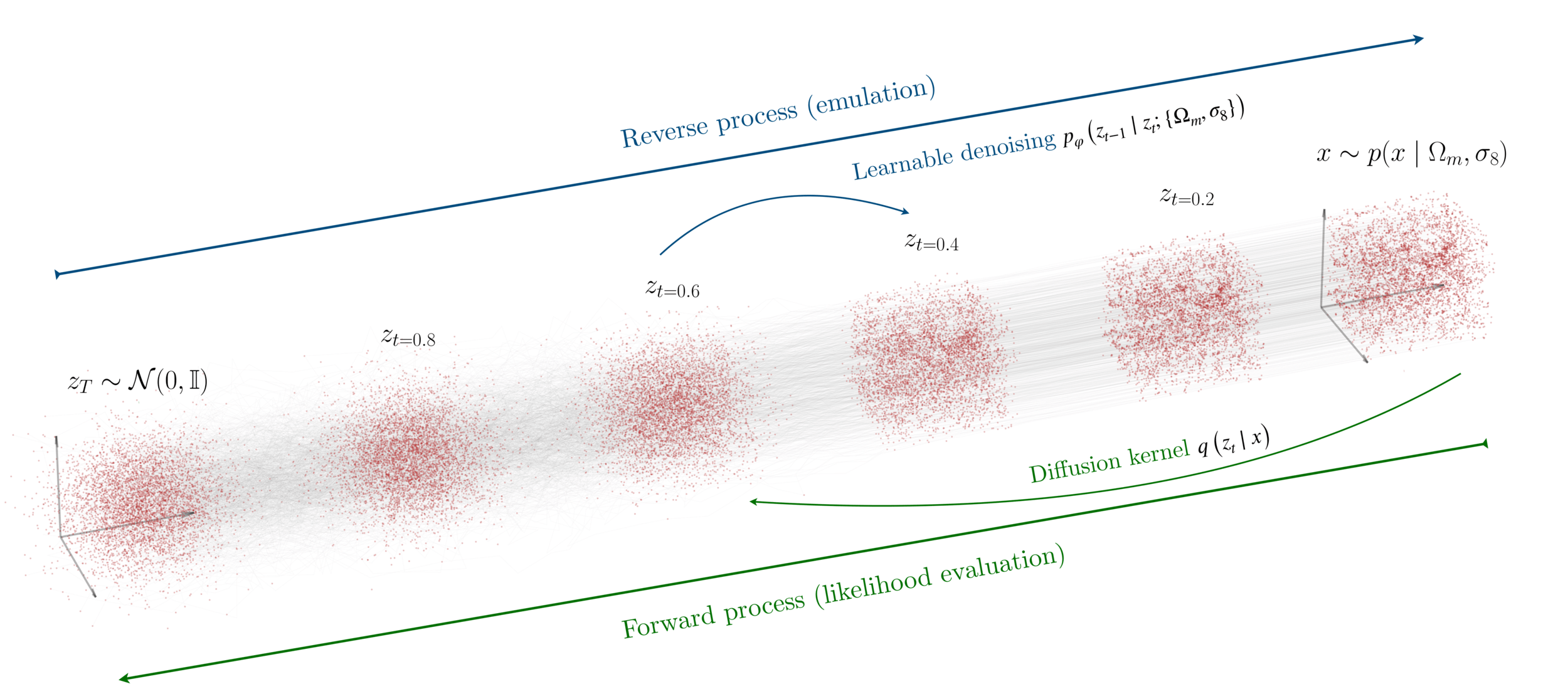
["A point cloud approach to generative modeling for galaxy surveys at the field level"
Cuesta-Lazaro and Mishra-Sharma
arXiv:2311.17141]
Base Distribution
Target Distribution
- Sample
- Evaluate
Long range correlations
Huge pointclouds (20M)
Homogeneity and isotropy

Siddharth Mishra-Sharma
Carolina Cuesta-Lazaro IAIFI/MIT @ AI goes MAD 2024
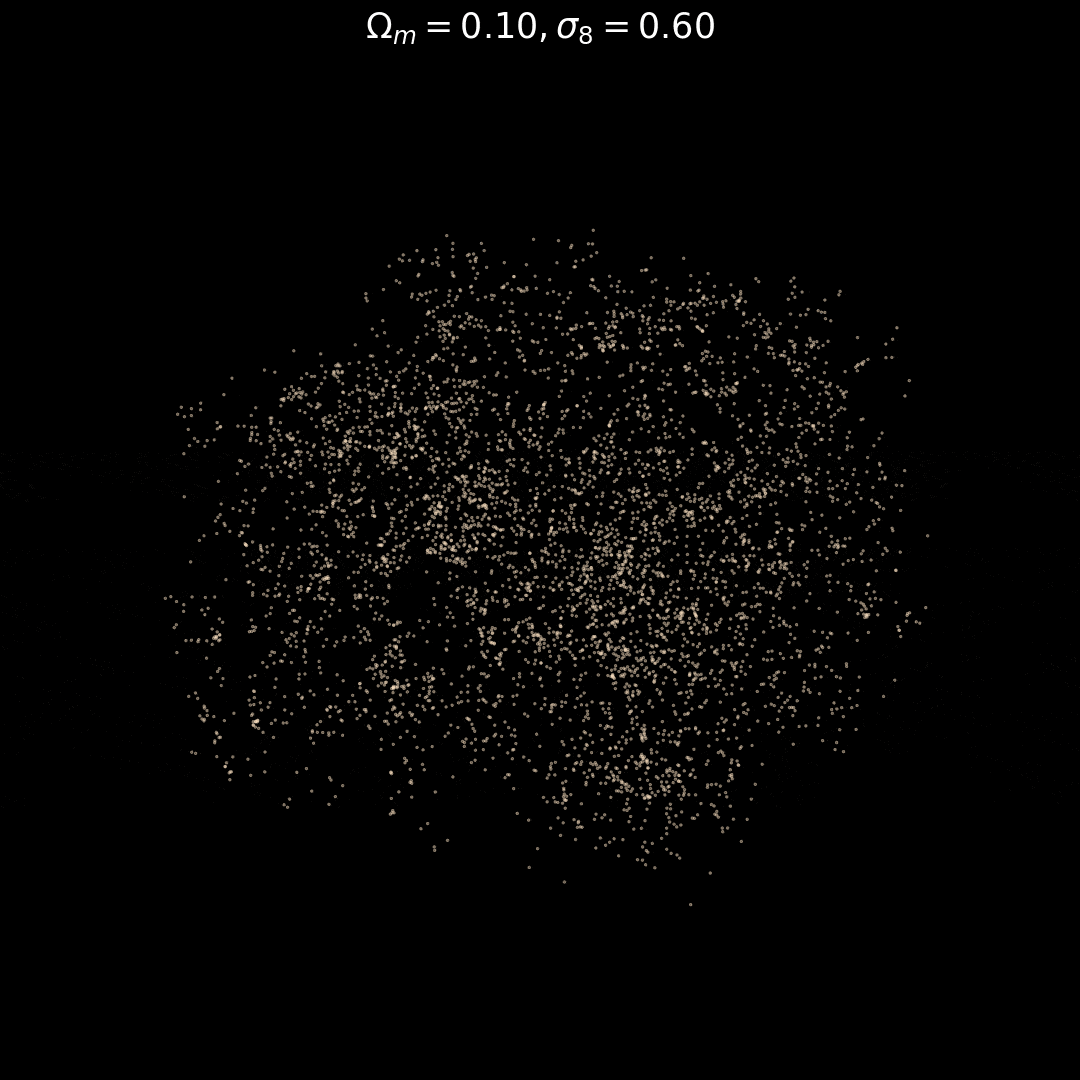
Fixed Initial Conditions / Varying Cosmology
Carolina Cuesta-Lazaro IAIFI/MIT @ AI goes MAD 2024

Diffusion model
Carolina Cuesta-Lazaro IAIFI/MIT @ AI goes MAD 2024
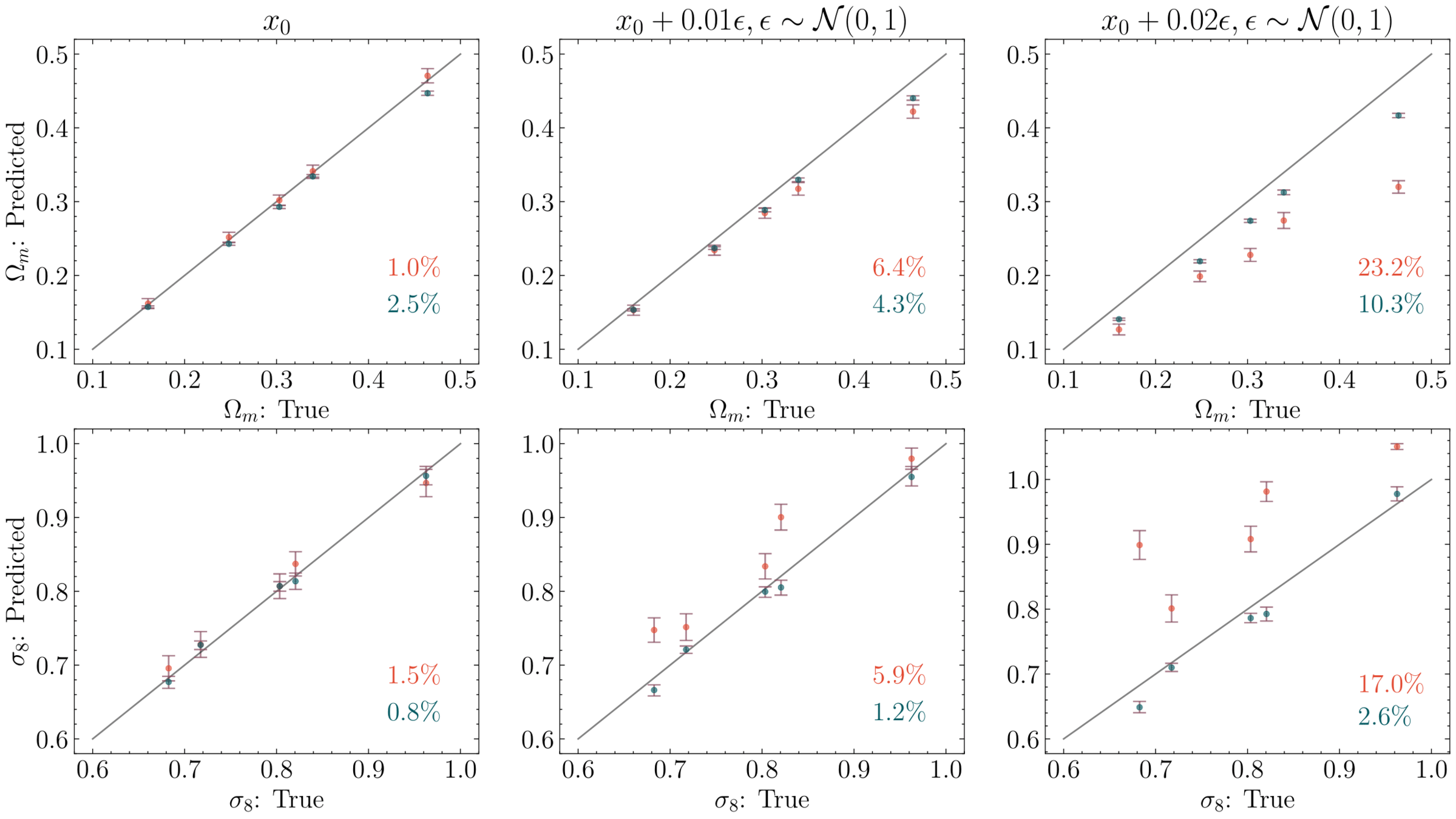
CNN
Diffusion
Increasing Noise
["Diffusion-HMC: Parameter Inference with Diffusion Model driven Hamiltonian Monte Carlo"
Mudur, Cuesta-Lazaro and Finkbeiner]

Nayantara Mudur


["Your diffusion model is secretly a certifiably robust classifier"
Chen et al
arXiv:2402.02316]
CNN
Diffusion
Carolina Cuesta-Lazaro IAIFI/MIT @ AI goes MAD 2024
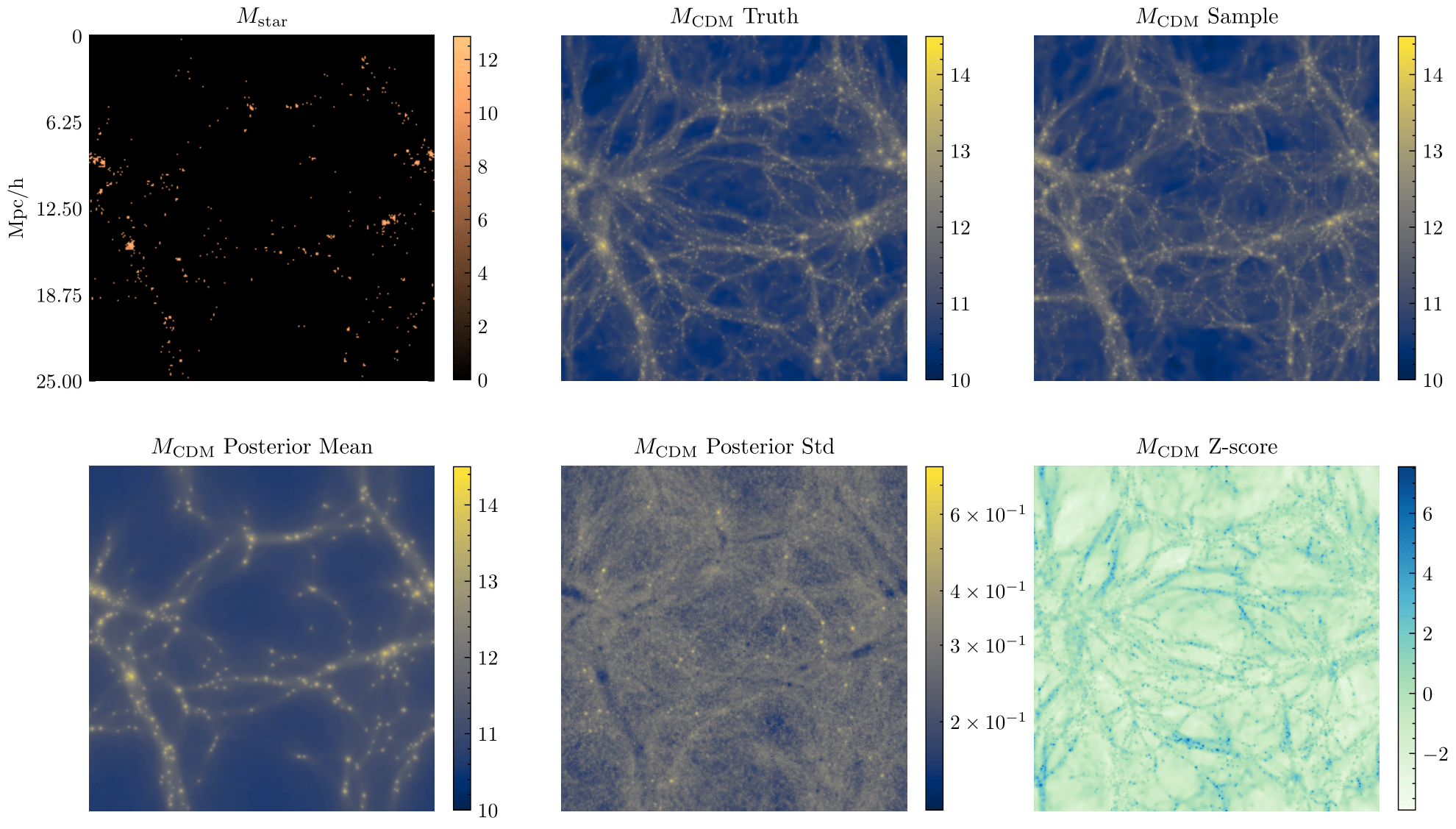
1 to Many:
Distribution of Galaxies
Underlying Dark Matter

["Debiasing with Diffusion: Probabilistic reconstruction of Dark Matter fields from galaxies"
Ono et al (including Cuesta-Lazaro) arXiv:2403.10648]


Victoria Ono
Core Park
Carolina Cuesta-Lazaro IAIFI/MIT @ AI goes MAD 2024


Truth
Sampled


Observed
Small
Large
Scale (k)
Power Spectrum
Small
Large
Scale (k)
Cross correlation
Carolina Cuesta-Lazaro IAIFI/MIT @ AI goes MAD 2024
TNG-300
True DM
Sample DM
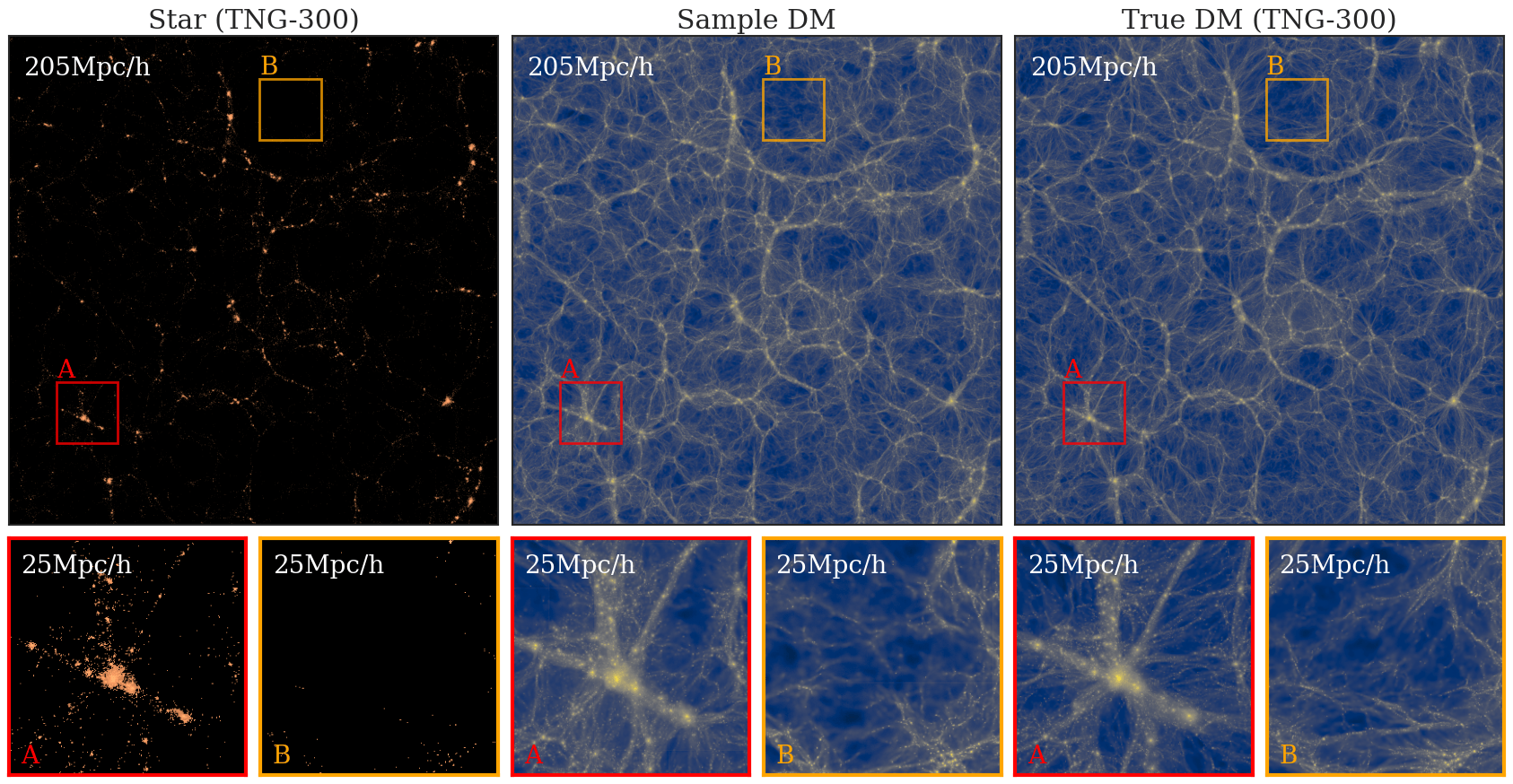



Carolina Cuesta-Lazaro IAIFI/MIT @ AI goes MAD 2024
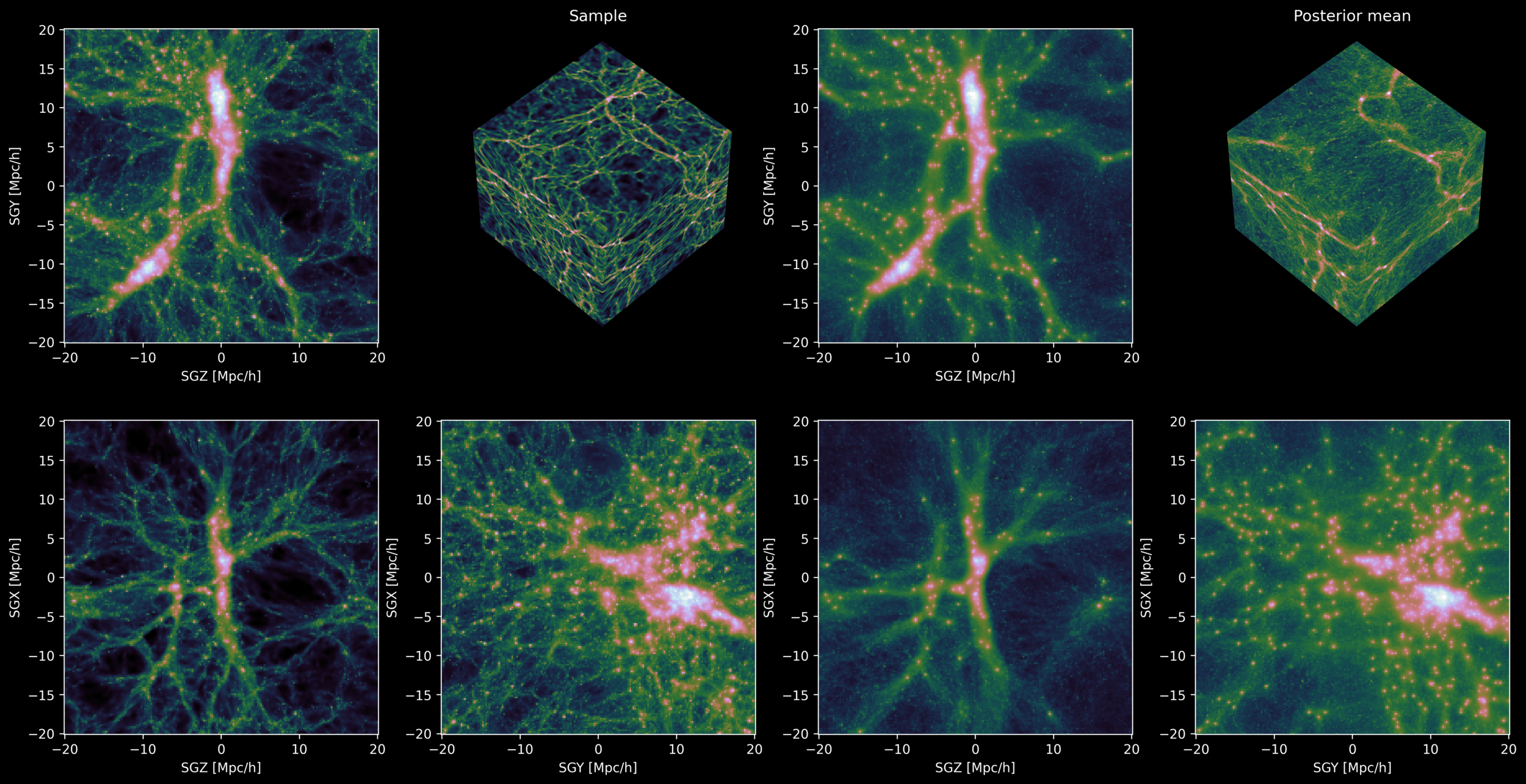
["3D Reconstruction of Dark Matter Fields with Diffusion Models: Towards Application to Galaxy Surveys" Park, Mudur, Cuesta-Lazaro et al (in-prep)]
Posterior Sample
Posterior Mean
Debiasing Cosmic Flows
Carolina Cuesta-Lazaro IAIFI/MIT @ AI goes MAD 2024
Reconstructing dark matter back in time
Stochastic Interpolants
NF


Carolina Cuesta-Lazaro IAIFI/MIT @ AI goes MAD 2024





?
["Probabilistic Forecasting with Stochastic Interpolants and Foellmer Processes" Chen et al arXiv:2403.10648 (Figure adapted from arXiv:2407.21097)]

Generative SDE
Carolina Cuesta-Lazaro IAIFI/MIT @ AI goes MAD 2024
Stochastic Interpolant
Boundary Conditions
Carolina Cuesta-Lazaro IAIFI/MIT @ AI goes MAD 2024
Carolina Cuesta-Lazaro IAIFI/MIT @ AI goes MAD 2024
Simulating what you need (and sometimes what you want)
Guided simulations with fuzzy constraints

Carolina Cuesta-Lazaro IAIFI/MIT @ AI goes MAD 2024
Simulating what you need
(and sometimes what you want)

Carolina Cuesta-Lazaro IAIFI/MIT @ AI goes MAD 2024

How do we learn what is the robust information?

Simulating dark matter is easy!
"Atoms" are hard" :(
N-body Simulations
Hydrodynamics
Can we improve our simulators in a data-driven way?
How well can we simulate the Universe?
(if cold!)
Carolina Cuesta-Lazaro IAIFI/MIT @ AI goes MAD 2024



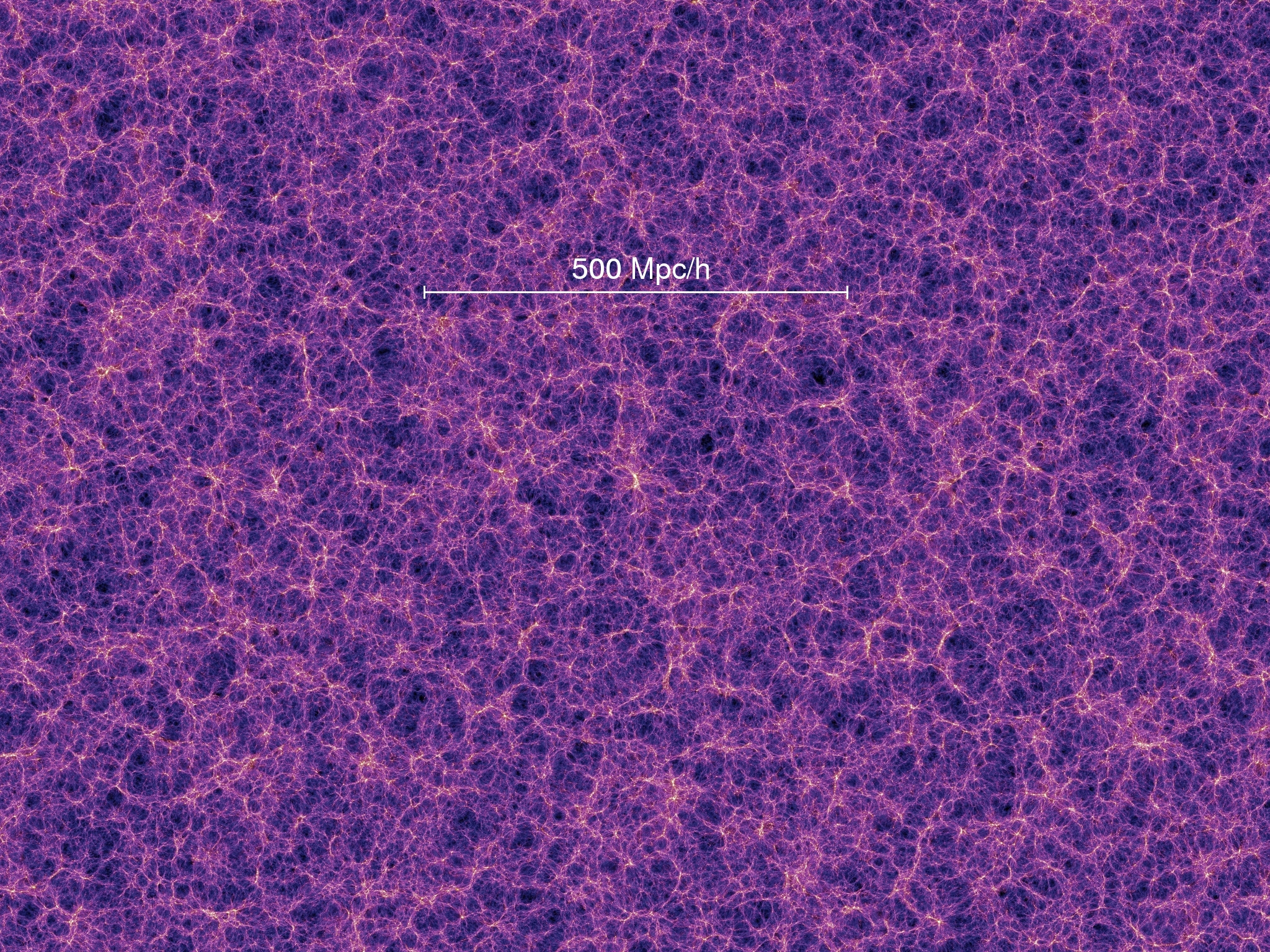
~ Gpc
pc
kpc
Mpc
Gpc
[Video credit: Francisco Villaescusa-Navarro]
Gas density
Gas temperature
Carolina Cuesta-Lazaro IAIFI/MIT @ AI goes MAD 2024

Small
Large
In-Distribution
In-Distribution
In-Distribution
Out-of-Distribution
Out-of-Distribution
Out-of-Distribution
Out-of-Distribution
Out-of-Distribution
Out-of-Distribution
Carolina Cuesta-Lazaro IAIFI/MIT @ AI goes MAD 2024

["Multifield Cosmology with Artificial Intelligence" Villaescusa-Navarro et al arXiv:2109.09747]
Out-of-Distribution
In-Distribution
Carolina Cuesta-Lazaro IAIFI/MIT @ AI goes MAD 2024

Mikhail Ivanov
Robust galaxy bias model: Effective field Theories
+ Simulation as priors


Field-level EFT
["Full-shape analysis with simulation-based priors: constraints on single field inflation from BOSS" Ivanov, Cuesta-Lazaro et al arXiv:2402.13310]

Andrej Obuljen
Michael Toomey

Carolina Cuesta-Lazaro IAIFI/MIT @ AI goes MAD 2024

["Full-shape analysis with simulation-based priors: cosmological parameters and the structure growth anomaly" Ivanov, Obuljen, Cuesta-Lazaro, Toomey arXiv:2409.10609]
Carolina Cuesta-Lazaro IAIFI/MIT @ AI goes MAD 2024
Representation Learning
Informative abstractions of the data



Transfer learning beyond LCDM
Cosmic web Anomaly Detection
Representing baryonic feedback

What makes a good representation?
Carolina Cuesta-Lazaro IAIFI/MIT @ AI goes MAD 2024
General
Predictive

Low dimensional?
Should generalize across scales, systems...
Transfer to unseen conditions
p(x|z)
Simple : Occam's razor
Causal?

Representation Learning a la gradient descent
Carolina Cuesta-Lazaro IAIFI/MIT @ AI goes MAD 2024
Contrastive
Generative
inductive biases
from scratch or from partial observations



Students at MIT are
OVER-CAFFEINATED
NERDS
SMART
ATHLETIC


Simulator 1
Simulator 2


Dark Matter
Feedback
i) Contrastive
Learning the feedback manifold
Baryonic fields
ii) Generative
Carolina Cuesta-Lazaro IAIFI/MIT @ AI goes MAD 2024


Baryonic fields
Dark Matter
Generative model
Total matter, gas temperature,
gas metalicity





Encoder
Carolina Cuesta-Lazaro IAIFI/MIT @ AI goes MAD 2024


What is the space of plausible solutions and how do we search it?
Differentiable Galaxies ODEs
Our best bet
Neural Network corrections
Finding the missing pieces
Data-driven hybrid simulators
Are these models predictive?
Carolina Cuesta-Lazaro IAIFI/MIT @ AI goes MAD 2024
Parity violation cannot be originated by gravity

["Measurements of parity-odd modes in the large-scale 4-point function of SDSS..." Hou, Slepian, Chan arXiv:2206.03625]


["Could sample variance be responsible for the parity-violating signal seen in the BOSS galaxy survey?" Philcox, Ereza arXiv:2401.09523]
Carolina Cuesta-Lazaro IAIFI/MIT @ AI goes MAD 2024



Real or Fake?
x or Mirror x?
Carolina Cuesta-Lazaro IAIFI/MIT @ AI goes MAD 2024

Train
Test

Me: I can't wait to work with observations
Me working with observations:
Very subtle effect -> Hard to find data efficient architectures
Carolina Cuesta-Lazaro IAIFI/MIT @ AI goes MAD 2024

1. There is a lot of information in galaxy surveys that ML methods can access
2. We can tackle high dimensional inference problems so far unatainable
3. Our ability to simulate limits the amount of information we can robustly extract
Hybrid simulators, forward models, robustness
Unsupervised problems
Mapping dark matter, constrained simulations... Let's get creative!
Field level inference

